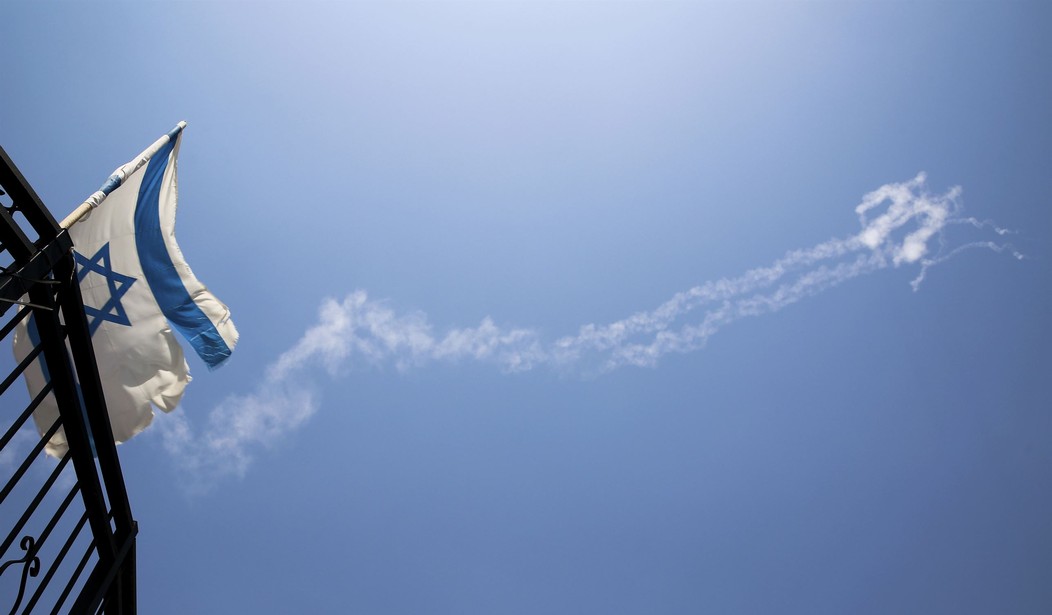In a significant escalation of Middle East tensions, Iran and its proxies launched a coordinated attack against Israel. The Iranian regime sent hundreds of drones, missiles, and rockets toward the Jewish state.
Most of the drones were shot down by Israel, the United States, and other allies. However, the attack has brought up concerns about igniting a broader conflict in the Middle East.
Israeli President Isaac Herzog stated on Sunday that Israel does not want war with Iran but indicated that Iran’s recent aggression warrants a response. Meanwhile, leaders in Arab nations are urging restraint, fearing a bigger explosion of hostilities in the region.
During an appearance on CNN, Herzog referred to the Iranian regime’s assault as “a very aggressive and brutal attack, which looks like a declaration of war.” However, he was quick to add, “We are not seeking war.”
Iran and its proxies in Iraq, Lebanon, and Yemen launched more than 300 rockets on Saturday evening. It was a response to an Israeli strike on Iranian military leaders in Syria last week. About 99 percent of the projectiles were intercepted, with Israel suffering limited damage to some of its military complexes.
In response to the attack, the White House affirmed its “ironclad” support for the Jewish state. In a phone call, President Joe Biden told Israeli Prime Minister Benjamin Netanyahu that if Israel were to retaliate, the U.S. would not be involved.
Herzog asserted that Saturday’s attacks were part of a broader effort on the part of the Iranian regime against Israel. “Iran has been holding war against us for decades with its proxies,” he said. “We are meeting an empire of evil which wants to eradicate all values of the free world.”
He added that world governments must now come together against Iran in light of the attack.
“It’s about time the world stands up to them and says, ‘No, we won’t let you.’ Don’t, as President Biden said, ‘Don’t’. And therefore, because he says ‘don’t’ and we all say ‘don’t,’ that’s why they were met with a very strong response last night,” Herzog said. “But I think the world has to understand that this is another development in the war which Iran is waging against the free world and has to be met accordingly.”
Members of the Israeli war Cabinet have vowed retaliation against Iran for the missile and drone launches, despite urging from the Biden administration.
Meanwhile, Arab governments are calling for de-escalation between both countries.
The Saudi Arabian Foreign Ministry called for the “highest levels of self-restraint” in a statement, while the United Arab Emirates government warned of growing “instability” in the region.
Egyptian Foreign Minister Sameh Shoukry made a similar warning, urging both Israeli and Iranian leaders “to exercise utmost self-restraint and refrain from provocations that would increase tension and instability in the region.”
Shoukry said the conflict between Israel and Iran “has begun taking a dangerous turn as it coincides with the crisis in the Gaza Strip and adds tension to other hot spots in the region,” adding that he spoke to Secretary of State Antony Blinken about the situation.
The Jordanian government showed favor for Israel by participating in its defense on Saturday, with the government saying the move was to prevent Iran “from endangering the safety of our citizens and residential and populated areas.”
As the dust settles from Iran’s attack, the world is watching closely to see how Israel will respond. While Herzog affirmed that Israel does not want war, it is clear the Jewish state will not let the rocket attacks go unanswered. What remains to be seen is the nature of Israel’s retaliation and how it might affect tensions in the region.
RELATED:













Join the conversation as a VIP Member